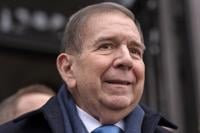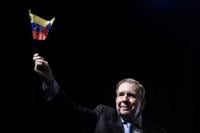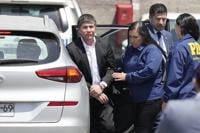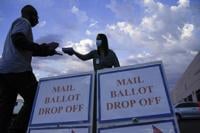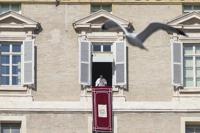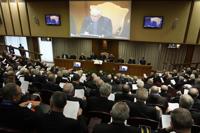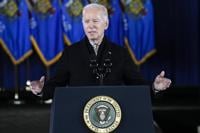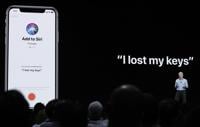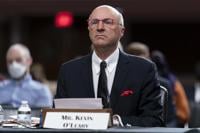CARACAS, Venezuela (AP) — Edmundo González has become a beacon of hope for millions of Venezuelans. They want to call him president. He believes he won that office at the ballot box last year. The government of President Nicolás Maduro says he did not.
The stakes for of the man who will govern Venezuela for the next six years have never been higher in this century.
González had never imagined he would be carrying the weight of the main opposition faction, the coalition. He had not even run for office before the July election.
A virtually unknown grandfather less than a year ago, he now has heard tens of thousands of people chant his name as loudly as they screamed “Freedom! Freedom!” at rallies across the South American country.
But González has paid the price for of the United Socialist Party of Venezuela. Under pressure, he has gone into exile. And on Tuesday, he said son-in-law Rafael Tudares had been kidnapped in the capital, Caracas.
“At what point did being related to Edmundo González Urrutia become a crime?” his daughter, Mariana González de Tudares, said in a statement that suggested the government was behind her husband’s disappearance.
The coalition of main opposition parties, in a statement, characterized it as a “forced disappearance for political reasons.” The government’s centralized press office did not respond to a request for comment.
González, 75, had been enjoying retirement after a career as a diplomat when the coalition selected him in April as a last-minute stand-in for opposition powerhouse . She had been blocked by the Maduro-controlled Supreme Tribunal of Justice from running for office after she with more than 90% of the vote.
González had just returned to Caracas from a trip to Europe when of becoming a candidate.
Before , she became his surrogate, introducing him as an honest family man while showing the crowds a banner with his headshot.
González had begun his professional career as an aide to Venezuela’s ambassador in the United States. He had other postings in Belgium and El Salvador and served as ambassador to Algeria. His last post was ambassador to Argentina during the first years of the government of Hugo Chávez, Maduro’s predecessor and mentor.
More recently, González worked as an international relations consultant, writing about recent political developments in Argentina and authoring a historical work on Venezuela’s foreign minister during World War II.
“I have never participated in partisan politics of positions of elected office,” he told The Associated Press in May. “I accepted it with enormous responsibility and as a contribution on my part to the democratization of the country, to the process of trying to seek the understanding, reconciliation, of Venezuelans.”
His years as a diplomat in El Salvador and Algeria coincided with periods of armed conflicts in both countries. For a time, his whereabouts were tracked by locals in El Salvador, and he would get calls at home meant to intimidate him.
His subdued tone and poker face, forged as a diplomat, go against the usual image in Venezuela of boisterous politicians. Maduro and his allies have taken his demeanor as a sign of weakness and chastised him on national TV.
“Coward,” Interior Minister Diosdado Cabello said Monday, alleging without giving evidence that the retired diplomat was a CIA agent. “He has neither courage nor disposition.”
The dueling claims for the presidency are rooted in the election results. Electoral authorities declared Maduro the winner hours after polls closed, but unlike in previous presidential elections, they did not provide detailed vote counts. However, from more than 80% of electronic voting machines, posted them online and .
The U.S.-based Carter Center, invited by Maduro’s government to observe the election, has said .
González left for exile in Spain in September after a judge issued a warrant for his arrest in connection with an investigation into the publishing of election results. The government last week announced for information on his whereabouts.
But he has vowed to return to his homeland to take the oath of office Friday. Meanwhile, the ruling-party controlled ���ϳԹ��� Assembly is ready to welcome Maduro for the swearing-in that would extend his 11-year presidency to 2031.
González, who has been recognized by several governments including the U.S. as Venezuela’s president-elect, has not said how he plans to return or wrest power from Maduro, whose ruling party controls all aspects of government.
to try to rally support ahead of Friday's ceremony, tapping his diplomatic skills.
On Monday, González met with U.S. President Joe Biden at the White House as well as with U.S. Rep. Mike Waltz, President-elect Donald Trump’s designee to be national security adviser once Trump is sworn in on Jan. 20.
Hours after announcing Tudares’ kidnapping on Tuesday, González said he would travel to Panama next.
“We continue,” he wrote on X.
____
Follow AP’s coverage of Latin America and the Caribbean at


